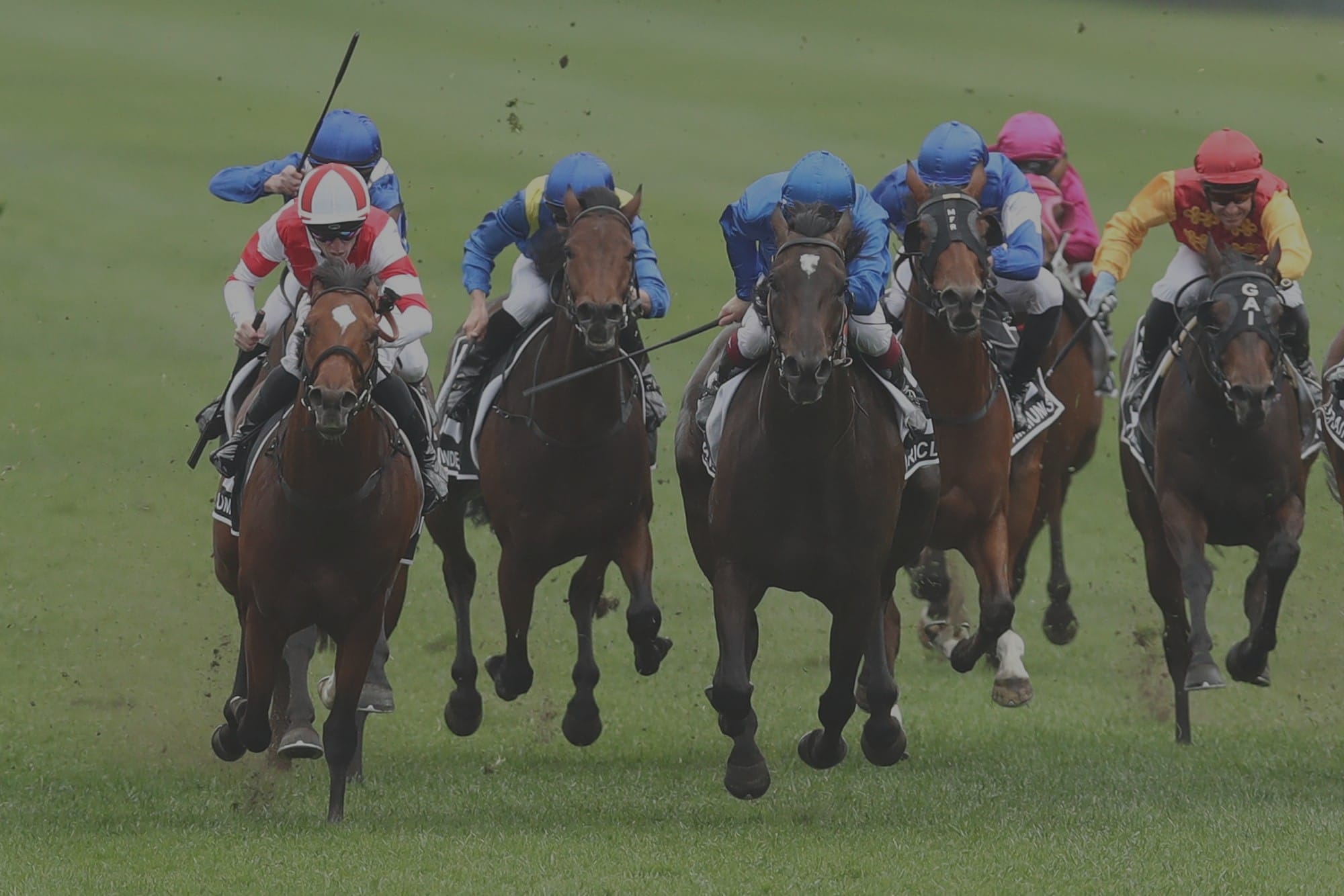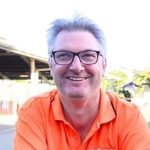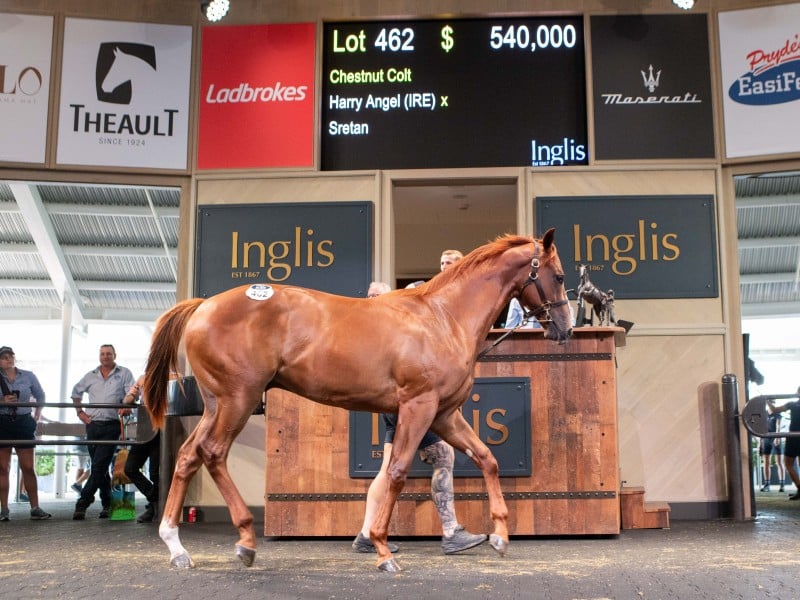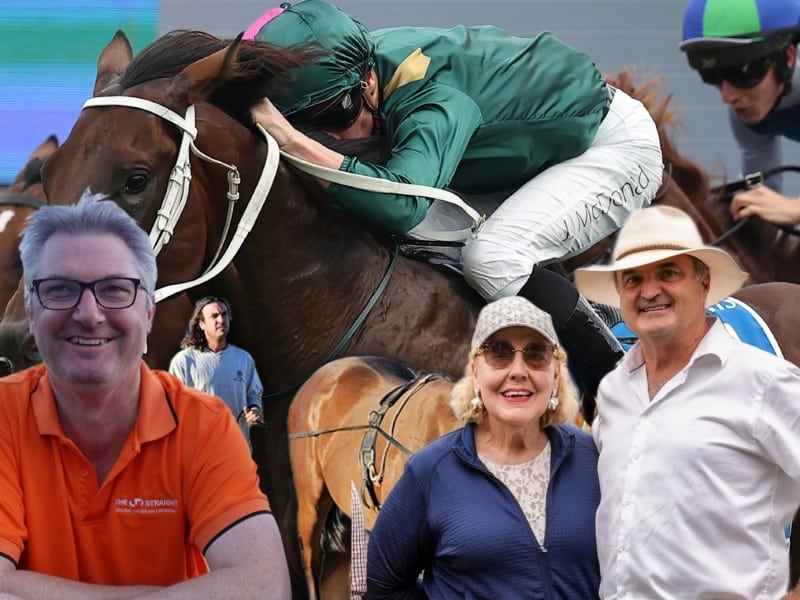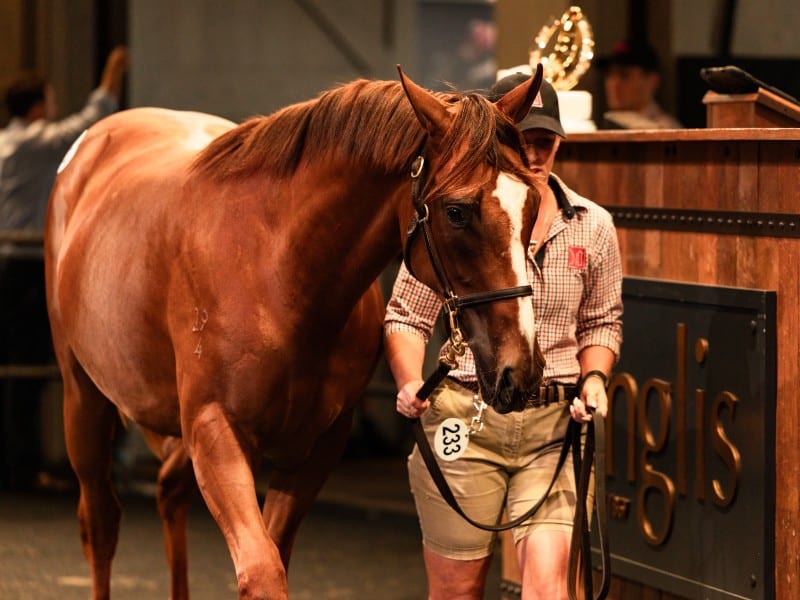Rowe on Monday: Elliott on Amo’s Tatts spree, international Pattern perspectives and Dr Sahu’s retirement

In this week’s Rowe On Monday, Tim Rowe chats to agent Alex Elliott about Amo Racing’s $50 million spend at the recent Tattersalls Sale, reflects on another banner day for Written Tycoon and more patter about the Pattern from Byron Rogers and Johnny McKeever.
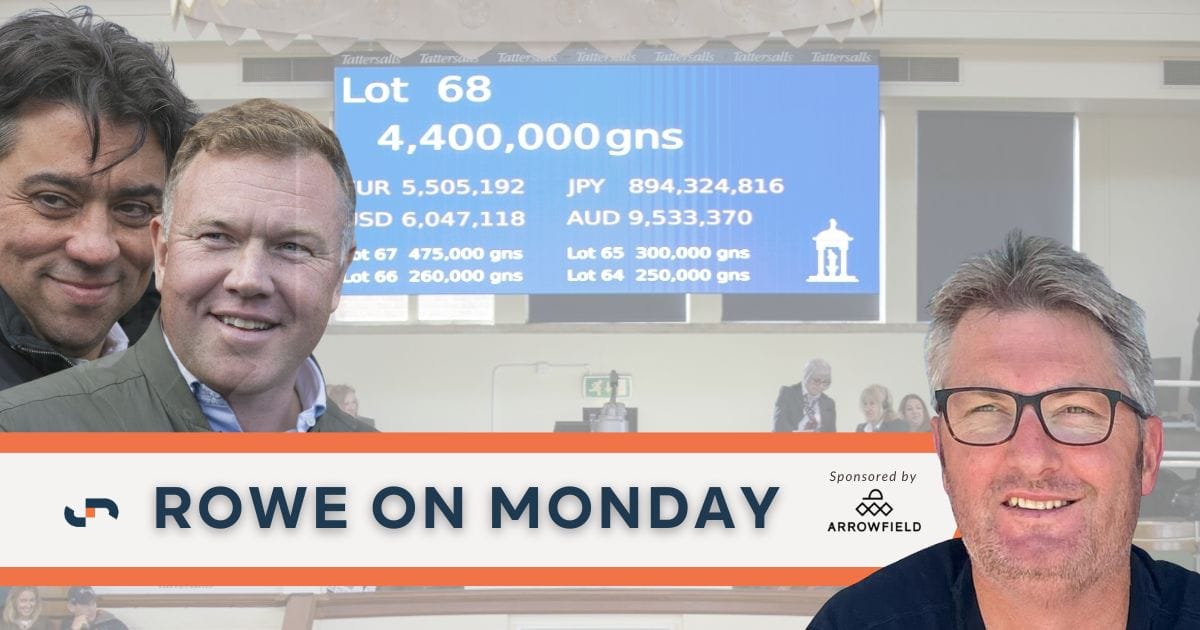
Amo fires at Tatts but Australia an unlikely target
There’s been Darley and the Inghams duking it out at an Easter sale, spending more than $40 million combined in 2008, and there was Nathan Tinkler who dropped huge sums of money on horses until he disappeared from the racing scene in line with his rapidly declining wealth.
In recent times, the Australian market has also had Aquis, Coolmore, Yulong and the array of colts syndicates more than making their presence felt at yearling sales rings in the eternal pursuit of equine greatness.
But their activity arguably doesn’t compare to what Amo Racing and its founder Kia Joorabchian achieved at last week’s Tattersalls sale in the UK, spending close to $50 million in just three days in a spectacular display of thoroughbred auction theatre.
“And I didn’t really see it coming,” Amo Racing’s agent Alex Elliott told The Straight in the wake of the stunning spending spree.
“He’s had great success in America with a lot of the purchases there and he’s done well in Europe, but he just had a little bit of a slow year this year.
“That often sickens a lot of people, but Kia decided to come back stronger than ever and didn’t he just? It was pretty surreal to be part of it.”
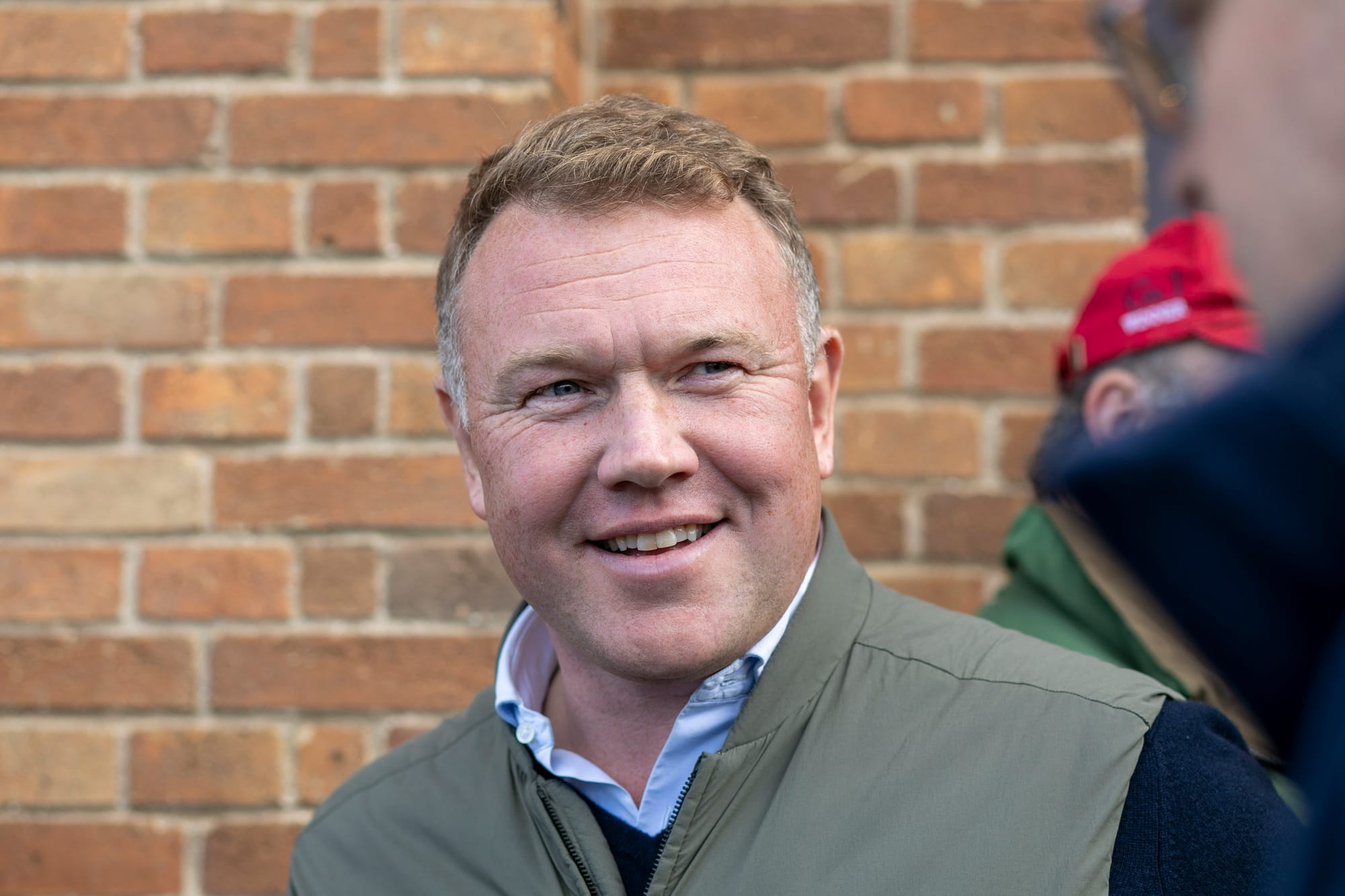
Joorabchian has been involved in racing for two decades, but it’s been a sideline to his big-time business investment in world soccer where he is a director of global football management company Sports Invest UK which has allowed him to indulge his passion for racing.
His racing exploits haven’t been without controversy, however, with the Iranian-born, British-educated businessman falling out with trainers – he removed Group 1 Champion Stakes-winning stallion prospect King Of Steel from Roger Varian’s care earlier this year – and even Elliott himself has been benched for a period before he was brought back from “hiatus” last year.
Joorabchian outlaid 4.4 million guineas (A$9 million) on a Frankel filly and 4.3 million guineas (A$8.75 million) for a colt by King Of Steel’s sire Wootton Bassett later in the sale.
Eight of Amo Racing’s haul were bought in partnership with the likes of Al Shaqab, which remains a part owner of Swettenham Stud’s banner horse Toronado and rostermate, Wootton Bassett’s shuttling son Wooded.
“I was a little bit taken aback when we got the filly for 4.4 million early in the piece on the first day, but from then on it was kind of just, you know, nothing really shocks me,” said Elliott, who revealed Amo underbid numerous horses during the Book 1 sale.
“I don’t really feel the pressure. I’m sure I’ll feel it when they run, but you know, it was very much a team effort. It wasn’t just one man making the decisions.”
Joorabchian hatched a plan to match it with some of world racing’s biggest players and executed the high-cost strategy to a tee.
“We had a plan, myself and Alex and the rest of the team, that this is the week that we need to make a change and really go for pedigrees,” Joorabchian told the media at Tatts.
“We know that we can’t compete with the homebreds at the moment such as the Coolmores and the Juddmontes and the Godolphins and the Shadwells, and all those guys, they all have so many great homebreds.
“We’ve done our stats, we’ve done our research on that and, if you look at all the Group 1s in the last few years, the majority of them have been homebreds or well-bred horses. At the moment we can’t compete with that.”
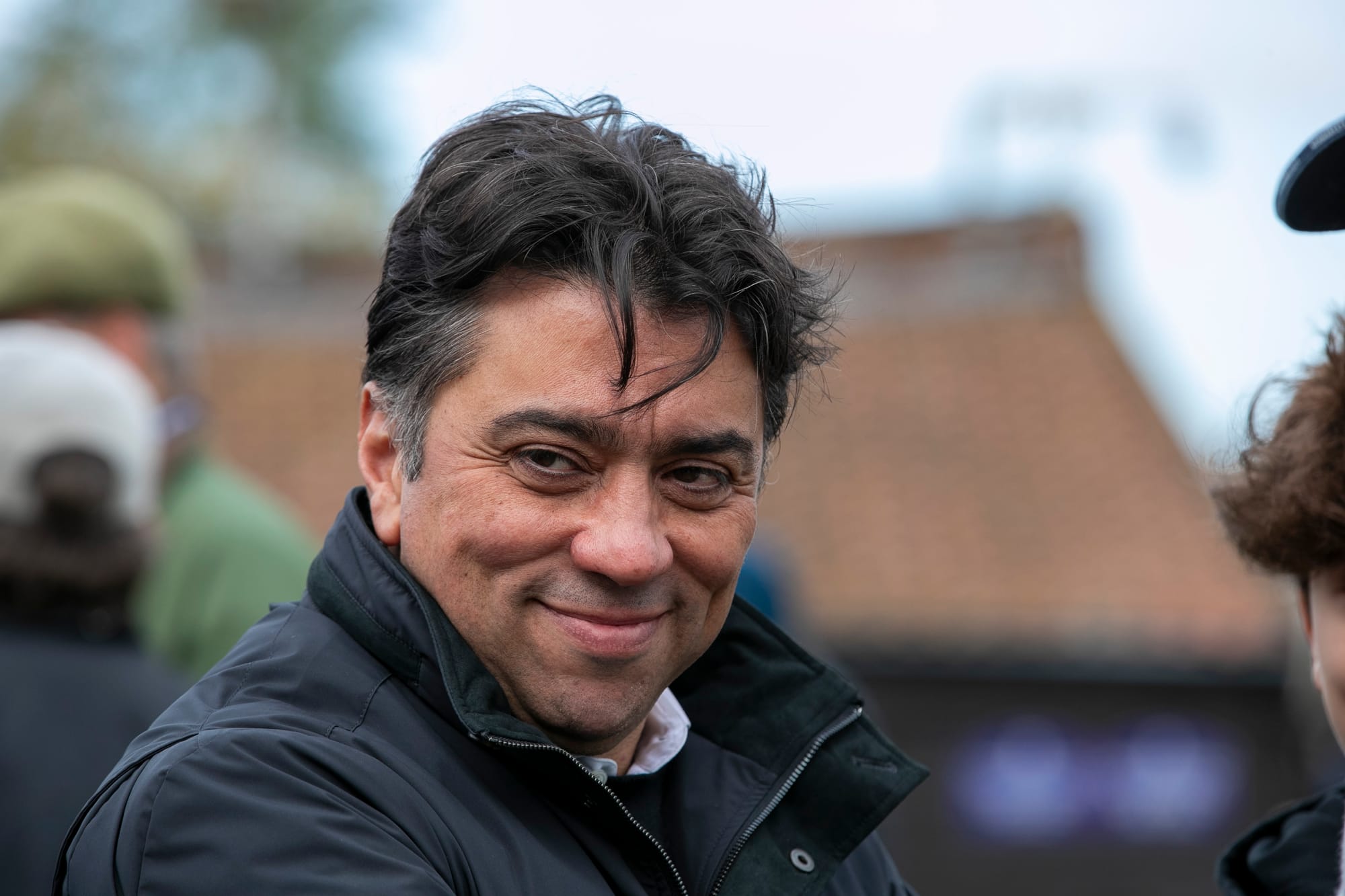
Amo Racing’s increased sales ring ammunition – on full display at Newmarket last week when signing for 25 yearlings at a staggering cost of A$46.699 million – has been turbo-charged by the financial support and backing of Greek businessman Evangelos Marinakis, the owner of football teams Nottingham Forest and Olympiacos as well as a club in Portugal.
“And, you know, one of the last Greek shipping magnates to be heavily involved in the racing and breeding world was Stavros Niarchos,” Elliott said of Niarchos, who raced a host of champions such as Miesque and her son Kingmambo, Spinning World and Bago.
“We’ve seen what he achieved and God knows if it’s got the legs to do that. But they’ve certainly got off on the right foot and hopefully we bought them some good horses this week.”
With Amo’s ambition to compete with the world’s best breeders and owners, wouldn’t Australia, at least to a small degree, come into calculations for Joorachian?
Not necessarily, says Elliott.
“I don’t think his sporting side of his agency, so to speak, stretches really to Australia, but you never know,” the bloodstock agent said.
“He spends a lot of time in the States and obviously lives in London, so, at the minute, I don’t see him getting to Australia, but never say never with this man.”
“I don’t think his sporting side of his agency, so to speak, stretches really to Australia, but you never know.” – Alex Elliott
After the exhilarating week at Tatts for Elliott, there was no time for a breather. He was working the Tatts Book 2 to 4 catalogues and also preparing for the upcoming Tatts Horses In Training Sale.
“We’ve got a pretty good horse by Frankel, half-brother to Best of Days, who was a Group 1 winner in Australia,” he said.
“He’s called Hutchence, named after the great man himself, Michael Hutchence (the late INXS lead singer) , so hopefully there’s going to be a bit of Australian interest in him.”
Last year, Elliott’s consignment sold the lightly raced Lope De Vega gelding Balance Play for a sale-topping to 575,000 guineas (A$1.17 million) to agent Johnny McKeever and Australian trainers Gai Waterhouse and Adrian Bott.
Balance Play is set to have his first start Down Under at Warwick Farm on Wednesday.
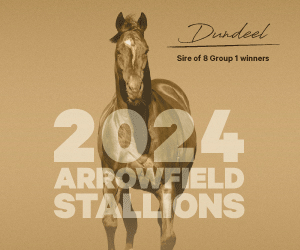
Another chapter is Written
Written Tycoon spent just one season at Arrowfield, the year 2020, but he’s certainly made an impression.
Standing there in a deal orchestrated by John Messara and then Woodside Park Stud owner Mark Rowsthorn when moving mares across borders, particularly Victoria, was going to be problematic because of the Covid pandemic, it was deemed Written Tycoon would be best-placed in NSW.
He covered 190 mares, resulting in 153 live foals, and already that now three-year-old crop has produced three Group 1 winners, and six stakes winners overall, from 79 runners at a stakes winners to runners ratio of 7.6 per cent compared to his overall 5.4 percent record.
Saturday’s Caulfield Guineas winner Private Life, a colt owned by the Coolmore syndicate and trained by Chris Waller, joined champion two-year-old fillies, Golden Slipper winner Lady Of Camelot and New Zealand Group 1 winner Velocious, as elite level winners from the “Arrowfield crop”.
Danehill Stakes winner First Settler, being aimed at the Group 1 Coolmore on Derby Day at Flemington, could be the next one to score at the highest level.
Private Life, a winner of three of his five starts, is out of the Kerry Parker-trained Group 3-winning, three-time Group 1-placed mare Aliyana Tilde. Bred by Arrowfield, Alan Jones’ Belford Productions and John Leaver’s Planette Thoroughbreds, Private Life was bought by Coolmore’s Tom Magnier at the Magic Millions sale last year for $650,000.
Just like Capitalist and Ole Kirk, Written By and Dirty Work, another son of Written Tycoon at stud – and the first at Coolmore – is now assured.
More Pattern talk
The Pattern has existed for five decades and, in many ways, it plays an important role in the valuation of bloodstock domestically and internationally – perhaps too much depending on who you canvass for opinion.
Expatriate Australian Byron Rogers, who worked for Arrowfield prior to moving to the US and later establishing his own business, believes the “Pattern no longer reflects a potential breeding outcome”.
“It’s a commercial reflection now,” Rogers says. “Breeders need to make their minds up if they’re just happy for it to be a commercial reflection of the breed, and then that’s fine, but they need to be aware that it’s not about helping them breed a better horse.”
In his research and data analysis, Rogers has found that a non-stakes-winning mare who had been successful in a Saturday metropolitan race in Sydney and Melbourne was more likely to produce a better horse than a Listed winner in Queensland or South Australia.
“I can tell you from a breeding perspective, you are actually slightly better off buying a mare that won a race on a Saturday in Sydney or Melbourne than you are buying a mare that won a Listed race in South Australia or Queensland,” Rogers said.
“If you normalise for the stallion … and you normalise for sex and all the other variables that go into what influences outcomes in the sale ring and on in the racetrack, you pay more money for the one that’s out of the Listed-winning mare, the one in Adelaide or Brisbane, but you get more value out of the ones that were just winners in a Saturday in Melbourne or Sydney.
“The Pattern system is not measuring a trait for a breeding purpose, it’s measuring a commercial outcome, that’s what it’s coming down to.”
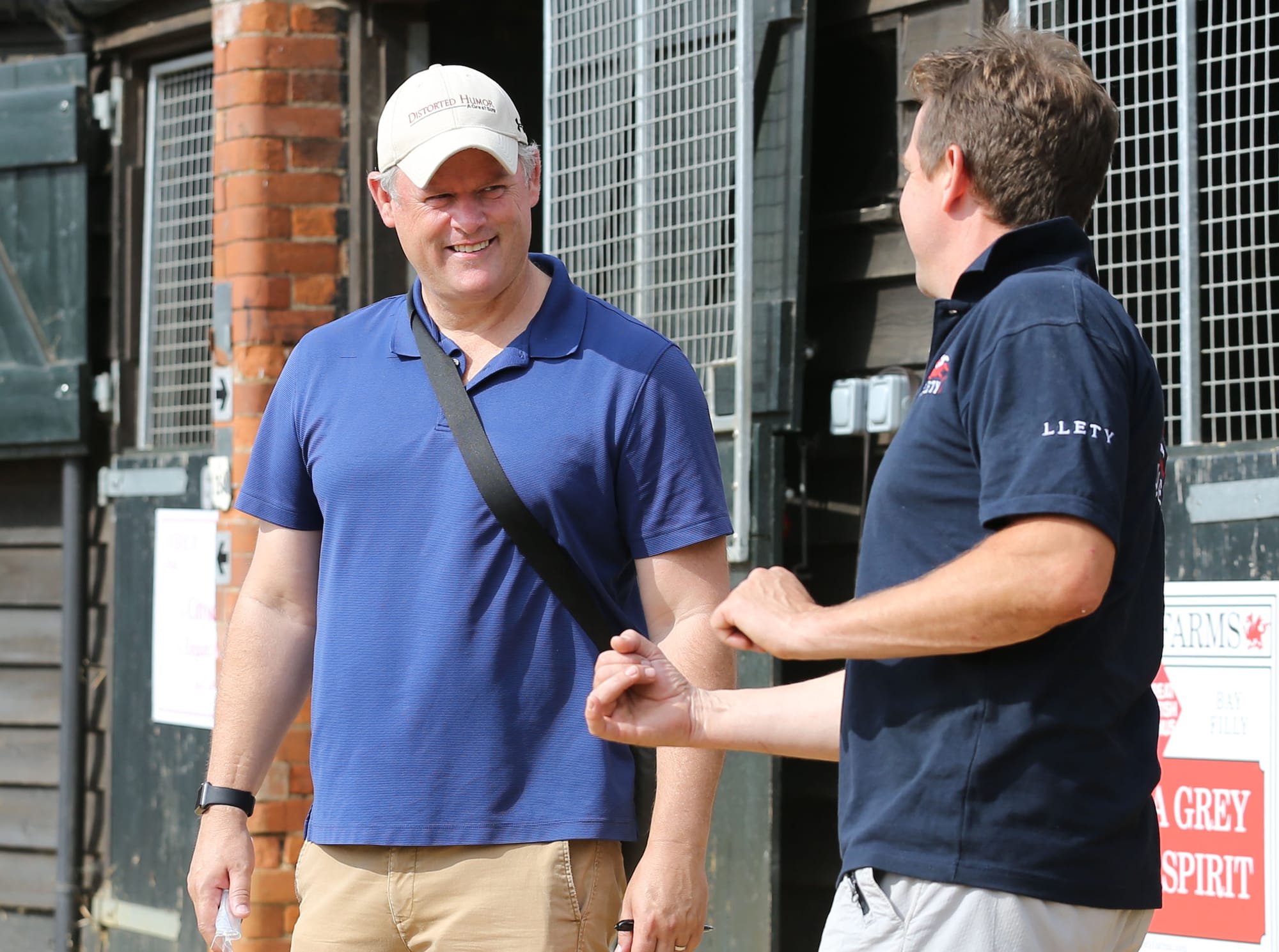
Despite his findings, Rogers understands the commercial realities faced by breeders and that owners and trainers pay more for yearlings out of those black-type earning mares.
“You can go as far afield as buying mares in the South Island of New Zealand if they’re getting (black type) winners there. But if you’re talking about trying to breed (good racehorses) there is an inefficiency in the market and that can be exploited for breeders who don’t have the budget to be spending the big money,” Rogers said.
“The inefficiency is in the Pattern system and what it’s created is that we overvalue those Listed winners outside of Sydney or Melbourne and we undervalue the horses that just won the metro race in Sydney or Melbourne.”
There is a fear that Australia, with its rush to upgrade races outside The Everest and the All Star Mile, could face having its black type status demoted because of the raft of changes made in NSW in time for the spring and what we’re told interstate PRAs are set to follow suit.
Italy had its black type status downgraded by authorities, leading to its Group 1s and 2s being considered to be Listed races internationally, as was the case in Singapore and for some races in Hong Kong such as the Derby.
A source with knowledge of the workings of the International Federation of Horseracing Authorities told The Straight: “Italy’s a little bit different in this situation, geographically, because in Australia, if it was to be demoted, the races would still go on and you’d still have the same horses running, but from an international cataloguing point of view, it would be a disaster if a mares’ Group 2 race was to be considered internationally as a Listed race,” the source said.
“The whole idea of the Pattern is to ensure that the cataloguing standards for breeding are the same around the world.
“If the international body feels that Australia is doing the wrong thing, they do have the power to demote them, but obviously there would be some serious litigation that would happen if that was to come to fruition.”
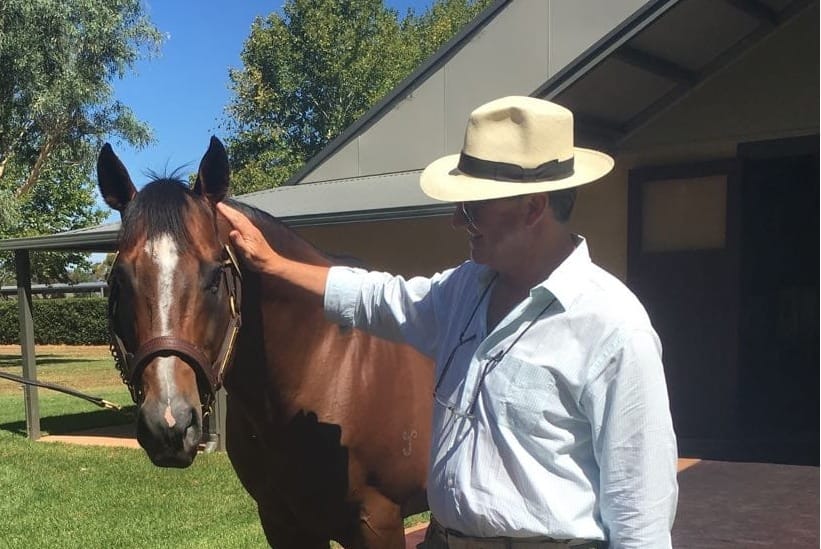
Well-known bloodstock agent Johnny McKeever, who operates extensively in both hemispheres, is adamant that The Pattern needs to be preserved to the highest standards.
“When we see horses with Italian black type, let’s say, at the sales in Europe their progeny doesn’t account for the same value at all compared to others who have won races in the Crimea countries, such as England, Ireland or France,” McKeever said.
“So, it slightly self-polices itself in that respect. But, Australia’s a big boy, and it doesn’t need to be doing this. The quality of its top-class racing speaks for itself.
“Adjusting races that definitely deserve upgrading is fine, but you’ve got to go through the process of downgrading, too.
“It doesn’t want to get a reputation for being a country where you gain cheap black type.”
End of an era at Emirates
After three decades of dedicated service to His Excellency Nasser Lootah and Emirates Park, long-serving director of operations Dr Shalabh Sahu will retire at the end of October.
First employed as the resident veterinarian of the thoroughbred operation’s Hunter Valley operations, based at Murrurundi, Dr Sahu was promoted to management roles, becoming one of the most respected industry figures since Emirates’ formation in the late 1980s.
Involved in one capacity or another with Emirates Park even before the fateful Doncaster Handicap success of Secret Savings (USA) back in 1997, Dr Sahu has overseen the breeding of such celebrated horses such as Shamekha, Dash For Cash, Al Maher, Almalad and Fat Al during his 39-year tenure with one of the country’s leading racing and breeding outfits.
“I have so many fond memories over close on 40 years of service to His Excellency Nasser Lootah, and I am eternally grateful to him for the kindness and inspiration he has constantly shown me. It really means the world to me and I have been blessed,” Dr Sahu said.
“I’d also like to show my appreciation to the Australian thoroughbred industry as a whole for making my journey in it so rewarding – both on a professional and personal level.
“I’ll remain a constant visitor to the sales, as well as to many of the major racing carnivals, and I look forward to bumping into everyone whose company I have so enjoyed.”
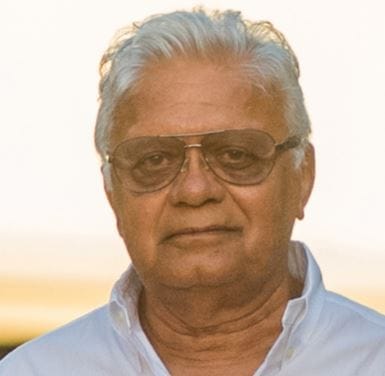
Speaking on behalf of His Excellency Nasser Lootah and his son Hussain, current Emirates Park general manager Bryan Carlson said: “I know the Lootah family are very keen for everyone to know how grateful they are for Dr Sahu’s service, which is just shy of 40 years.
“To think that the stud was first established in Blandford in 1989 and has navigated all the trials and tribulations that come with thoroughbred breeding and racing to get to where we are today… well, it just speaks volumes for the standards Dr Sahu has set over such a lengthy period of time.
“Personally speaking, I’ve had the pleasure of working in tandem with him for the past decade and I greatly value the partnership we have shared.”


